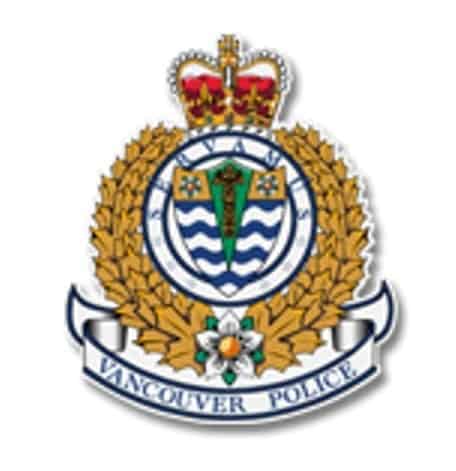VANCOUVER Police released a new report this week about the department’s use of street checks, saying that it’s an in-depth look at how, when, where, and why street checks are used, and who is being checked.
Street checks are a valuable proactive policing tool for ensuring public safety. Although they are used infrequently – an average of one street check, per front line officer, per month – they play an important role in crime prevention and ensuring the safety of vulnerable citizens, said Vancouver Police on Wednesday.
A street check occurs when a police officer encounters someone involved in suspected criminal activity or a suspicious circumstance, and documents the interaction. A street check can also occur if a police officer checks on the well-being of an at-risk person (e.g. someone with no home, or who has gone missing in the past). Sometimes street checks are a result of a call from the general public with concerns about something they’ve observed.
If police officers see potential criminal activity, they are bound by law to address it. Police have a legal obligation to preserve the peace, prevent crime, and keep citizens safe, said Vancouver Police.
The report shows:
- Street checks target repeat offenders who are involved in criminal activity. For example, in 2017, 80 per cent of all street checks involved individuals who had previously been suspects in police investigations in metro Vancouver.
- Street checks occur in areas with the highest rates of violent crime in Vancouver.
- Street checks are often used to check on at-risk, Indigenous females. Of all street checks of Indigenous women over a ten-year period, 53 per cent of those women had been subject of a missing person report.
- Street checks are used to respond to community concerns and expectations. For example, in 2017, of all of the calls for service (requesting police presence) for suspicious activity, 91 per cent were from concerned citizens.
The report was commissioned by the Chief Constable of the Vancouver Police Department, Adam Palmer, in response to a complaint made to the Office of the Police Complaint Commissioner about the ethnicities of the individuals most often being checked.
According to Vancouver Police, there is nothing in the analysis to suggest that people are checked because of their ethnicity, however, there is a lot to suggest that people are checked as a result of their actions.
Based on the data and analysis presented in the report, the Vancouver Police Department is recommending the following initiatives:
- Continue with “refresher” training sessions for front line members to ensure they continue to use street checks within their legal authorities and without discrimination based on the prohibited grounds set out in the B.C. Human Rights Code.
- Formalizing our existing VPD street check standards into policy and ensuring that our policy adheres to new provincial standards that are currently being developed.
- Committing to publicly releasing VPD street check data annually.
- The adoption of a newadministrative code for “check well-being” in the records management system used by police, to ensure well-being checks of at-risk, vulnerable citizens can be tracked more accurately.
- The expansion of the Indigenous Liaison role to have an officer in the Operations Division as a dedicated resource for Indigenous people, and to have one point of contact for community members who have questions about street checks.
- The development of a new public education initiative to ensure people are aware of what street checks are, and why and how they are used by police.
The report is available online (Understanding Street Checks: An Examination of a Proactive Policing Strategy).










